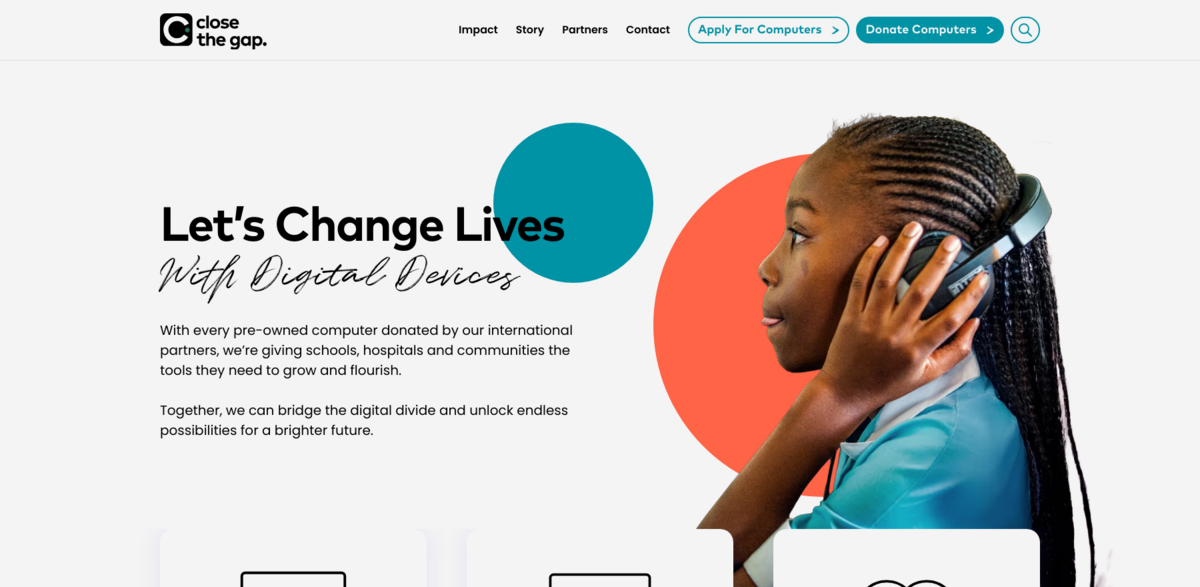What is Close the Gap?
Close the Gap is on a mission to change lives with digital devices. Since 2003, this inspiring project has been bridging the digital divide in emerging and developing countries around the world. By collecting pre-owned computers and IT equipment from international partners, Close the Gap provides schools, hospitals, and communities with the tools they need to grow and flourish. It’s all about unlocking endless possibilities for a brighter future… one device at a time.
Main Benefits and Key Figures
Here’s a quick snapshot of what Close the Gap has achieved so far:
- Over 1,673,488 ICT devices received and refurbished
- More than 6,168,115 beneficiaries reached globally
- Affordable, pre-owned computers provided to students, entrepreneurs, social enterprises, and community organizations
- Established hubs in Belgium, Kenya, and South Africa to boost social impact
- Created WorldLoop, an environmentally sound e-waste management system
IT Refurbishing and Digital Inclusion
Close the Gap doesn’t just collect old computers — they give them a new lease on life. Partnering with organizations, the project wipes, inspects, and configures devices to fit the specific needs of end-users. These refurbished devices then support education, healthcare, entrepreneurial ventures, and social projects. It’s a win-win: extending the life of IT equipment while fostering digital inclusion and innovation.
Sustainable E-Waste Management with WorldLoop
One of the standout features of Close the Gap is its commitment to sustainability. The project developed WorldLoop, a system designed to manage e-waste responsibly in developing countries. This ensures that discarded electronics don’t harm the environment but are handled in an environmentally sound way. It’s a crucial step in promoting the circular economy and reducing the digital footprint in regions where e-waste can be a serious problem.
Supporting Social Entrepreneurship and Innovation
Close the Gap goes beyond just providing devices — it actively nurtures innovation and entrepreneurship. Through innovation challenges and programs, entrepreneurs get the chance to develop digital solutions addressing societal issues. The Impact Accelerator Fund and Close the Gap Hubs further support social entrepreneurship growth and development, creating a vibrant ecosystem where ideas can thrive and make a real difference.
Project Impact and Sustainable Development Goals (SDGs)
- SDG 4: Quality Education – by providing access to digital tools for learning
- SDG 8: Decent Work and Economic Growth – fostering entrepreneurship and social enterprises
- SDG 9: Industry, Innovation, and Infrastructure – supporting innovation challenges and digital infrastructure
- SDG 12: Responsible Consumption and Production – promoting sustainable e-waste management through WorldLoop
- SDG 17: Partnerships for the Goals – building a global network across Belgium, Kenya, South Africa, and the Democratic Republic of the Congo
Global Network and Regional Hubs
Close the Gap’s impact is amplified by its powerful network spanning multiple continents. It all started in Belgium, where a network of companies committed to donating IT equipment was built. This hub also supports local digital inclusion projects and shares expertise with innovation hubs across Africa. In Kenya, hubs in Mombasa and Nairobi focus on strengthening social enterprise and ensuring digital solutions are accessible. Meanwhile, the South African hub connects African and European efforts, reinforcing IT asset disposition (ITAD) and social enterprise positioning. And in the Democratic Republic of the Congo, a joint venture with Texaf-Digital is helping to create a future where every Congolese citizen can actively participate in the global digital economy.


















